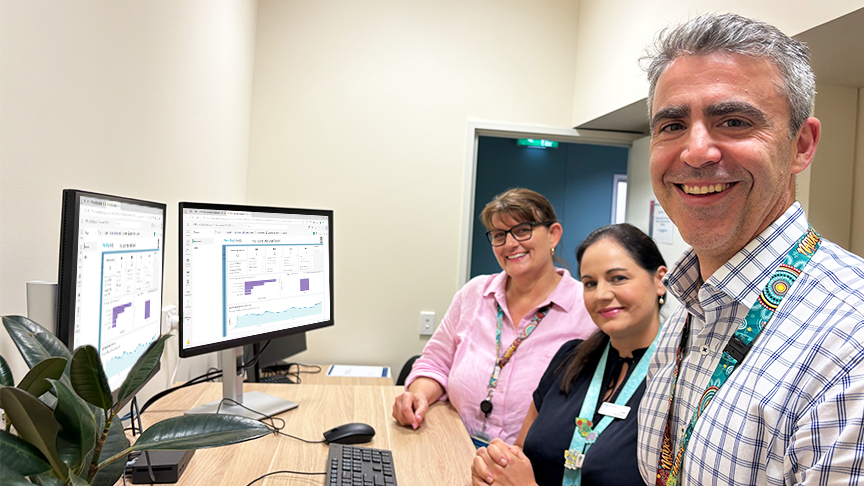
Metro South Health (MSH) has introduced a new tool aimed at facilitating timely discharge. The MSH Long Stay Patient Dashboard, which went live following a successful pilot in September 2024, provides real-time visibility of inpatients who are medically ready for discharge but are awaiting appropriate supports to transition to the community.
"The acute hospital environment is not the best place for patients once their medical treatment is complete," said Kellie Stockton, Executive Director of Allied Health at MSH.
"The dashboard helps ensure patients are discharged in a timely manner and transition to the care they need, improving their overall well-being."
One of the key features of the dashboard is its ability to identify the most common delays in patient discharge. For older patients (over 65), the primary barrier is often waiting for a bed in a Residential Aged Care Facility, while younger patients (under 65) typically face delays due to issues with the National Disability Insurance Scheme. By highlighting these obstacles, the dashboard enables hospital staff to take targeted action to resolve them, reducing the time patients spend in hospital and improving their care experience.
The dashboard is not just a tool for improving patient outcomes; it is also transforming how MSH staff work. Clinicians now have near real-time data, which helps them quickly identify and address barriers. This has made resource allocation more efficient and has facilitated better communication between clinicians and hospital executives.
"The dashboard allows us to focus on where the delays are happening and respond more effectively," said Michael Harris, Director of Allied Health at Redland Hospital.
"This helps us ensure that patients aren't waiting unnecessarily in an acute setting, which improves hospital efficiency and patient outcomes."
Before the dashboard, MSH relied on data sources such as site-specific spreadsheets and quarterly census reporting. With the dashboard now providing a single, reliable source of information, all MSH facilities can access the same data, enabling more informed decision-making at every level of the organisation.
"By providing near real-time visibility, the dashboard helps us manage hospital capacity more effectively, ensuring that resources are used where they are most needed," said Michael.
Looking to the future, MSH plans to continue optimising the dashboard to better meet the needs of patients and staff.
"The dashboard is not static; it will continue to adapt as we learn more about its use," said Kellie.
"We are committed to ensuring it remains a valuable tool for both staff and patients."
The success of the dashboard is a testament to the collaborative efforts of MSH’s Allied Health, Digital and Informatics teams, and front-line clinicians. The project was developed with significant input from staff at all levels and reflects MSH’s commitment to working together to improve care delivery.
"We had strong support from across the organisation, from front-line clinicians to the executive team," said Stockton.
"This project is a great example of how we are better together and can work to tackle challenges and improve outcomes ."